If you’ve ever wondered what it would be like to be living in Vietnam, and maybe even considered joining the EuroCircle Trip with Sherry in September 2013, this article is for you. Elliott Price is an American who has been living there for a while. He was born and grew up in rural Missouri in the United States. I would say that is about as different as it can get! He has also lived in Seoul, South Korea for a couple years as well as in Kaohsiung, Taiwan when he felt it was time to move on…
I am personally super interested in Vietnam and Southeast Asia – partly as Vietnamese community became very close to me in NYC when I lived there – and I ate mostly Vietnamese food for years.
Photos for this article are courtesy of An Nguyen, check her awesome Flickr page
You (and your wife/kids?) are living in Hanoi, Vietnam almost 10 years – do you think you will be staying there for the time being?
I’ve been living in Hanoi since 2004 (and in Asia since 2000). I live with my wife and our two children. Our son, Walter, is about to turn four, and our daughter, Evelyn, turns three in a couple months. We consider leaving Hanoi or Vietnam from time to time, but given that my wife is a Hanoian, we’ll always maintain a home here and return regularly. At this point, I’d say we’ll still be in Hanoi for at least a year or two, as much of our work is based here.
So you are now in your early 40s, right? How and when did you decide to live in Vietnam which is probably not the most likely place for an American to live?
I’ve just turned 38, actually. I decided to move to Vietnam while I was living in Taiwan. I was working on a music and art coop that a friend and I started in the city of Kaohsiung. In that sort of environment, you meet a lot of creative and interesting people. In the course of doing so, I met several who had spent some time in Vietnam. When the time came to move on from Taiwan, I’d built up a sense of what some years in Vietnam might be like. Of course, I had no actual idea what it was really all about, but the right characterizations had sufficiently accumulated for me to take the step to head this way. I spent about a month traveling the length of the country to get a sense of which region or city I might want to live in. After about half a day in Hanoi, I knew it was what I was looking for.
Is it hard to get a visa or a working permit in Vietnam – does it make any difference where you are from as far as you know?
While Vietnam has fairly standardized visa and work permit regulations like you might expect from many countries in the region, the enforcement of those policies is actually quite fluid and inconsistent. The result is that many who live here employ an ever changing strategy for staying in the country and working.
At the more professionally oriented end of the expat spectrum, work permits and residency cards are the norm. Responsible companies will handle the majority of the process, and it should be pretty painless. On the other hand, many English teachers, entrepreneurs, and freelancers deal with a very different visa economy where many work on tourist and “business” visas that entail frequent visa runs and inflated renewal fees through indirect channels. Much of it it isn’t strictly legal, but still remains commonplace.
As an American you might have been concerned about medical insurance before you went there or at least when you first arrived – medical costs can be sky-high in the USA. How is Vietnam?
The cost of medical care is one of the primary, practical benefits to leaving the U.S. Access to top notch health care and health insurance can be had at a fraction of the expense of what Americans typically endure. To say that the American health care system is “broken” is a massive understatement. I’m very, very happy to be rid of it.
Generally speaking, Hanoi’s actual health care facilities are adequate, though many expats find it necessary to head to Singapore or Bangkok for more involved procedures. If you speak some Vietnamese and are familiar with the culture of Vietnamese bureaucracies, then the locally available hospitals aren’t necessarily the horror show that some assume they must be. The most local of them don’t make the greatest initial impression, as they are terribly overcrowded and visibly rundown, but many newer, private facilities are opening up that are becoming real options.
Generally speaking, access to affordable, quality health care isn’t one of my greater concerns while living here, and my wife and I have been been through some pretty serious health matters with one of our children. We’ve managed fine.
How do you make your living in Vietnam and coming to stay in Hanoi enhanced your work experience?
I run a social media platform
for English speakers living in Vietnam. It started out a pet project for a friend and I and matured into a much more substantial part of what I do on a day-to-day basis. We work with a local Vietnamese partner. I mostly advise them on the business outreach aspects of those operations and with community building.
There’s no question that my life in Vietnam has enhanced my professional experience, and the work we’ve done on our site is a big part of that. One of the great things about working on it is that it allows us to get involved with so much that goes on in the city. It’s a fabulous point of entry into a range of industries, fields, communities, and activities that I’m just not sure I’d have been exposed to in such an involved way if we hadn’t started and operated our site.
Do you have any other plans for the future (work, business)?
Once you get a foothold in the Hanoian community of Vietnamese and expat small business developers, the opportunities to diversify your participation come quick. Deciding which to get involved with and which to let slide is one of the biggest challenges. If you enjoy entrepreneurship and the problem solving that some comes with it, Hanoi (and Vietnam, in general) is a fabulous place to be.
In addition to my work with the site we’ve developed, I tend to get involved with consultation on small business development, online marketing & brand building, and helping to broker business partnerships around the city.
There’s nothing quite like a city undergoing such a transformative period of economic growth. It’s not all positive. There are a lot of quality of life and ethical challenges the city faces. A culture thousands of years in the making is being forced to adapt to an unprecedented urban scale, and do so now. Unintended consequences are everywhere. Emergent phenomena threaten to overwhelm every form a planning attempted. And yet, if you can keep your head, trying to accomplish simple, definable goals in that sort of setting can be immensely rewarding. It’s part of what has kept me around for so long.
Since your native language is English and many people speak it anywhere in the world have you bothered to learn Vietnamese? Does it make a difference if you do speak the local language?
Of course, any native English speaker is very lucky to be born in a time where the world is making such an effort to learn our own mother tongue. It’s a massive advantage that too many take for granted. There are many, many things that a new arrival can manage to get done without picking up much of the local language.
That said, it would be unrealistic to say that speaking the local language makes no difference. Of course, it can convey massive advantages upon someone who takes the time to develop those skills. Many would tend to focus on the immediate ways it can further participation with those around them or the ability to communicate in ways that dissuades others from taking advantage of you. While those are certainly of value, I personally think the greatest value it confers is in being able to test and falsify assumptions I make about my social environment. It is all too easy to become a creature of habit anywhere, but intellectual habits can be a fatal hindrance when dealing with a new culture or business environment.
Even if I never actually used one bit of Vietnamese language in a formal business setting (and allowed Vietnamese partners to handle the majority of that), the ability to listen to random social interactions and interject passing comments leads to innumerable revisions of what I’ve assumed is going on around me. These may not seem directly related to the work I do, but I’d be crazy to think they don’t inform it in important ways.
We all miss home and family sometimes – how do you deal with those feelings? Vietnam is a long way from your home.
I was just thinking about it the other day, and I’ve very nearly lived in Hanoi for longer than any other single place in the world. Even my “hometown” at this point is about to move into second place on that list. In many ways, Hanoi is home at this point.
I very, very rarely miss my native country in a generic fashion. There are specific people, events, and things I do occasionally notice that I’m sacrificing time with, but all decisions in life involve some sort of sacrifice. I can live with that.
This is an incredibly interconnected era. While it may not be the same as having those random moments together or spending time in one another’s homes, I do manage to keep in close contact with those I miss most.
I also get the wonderful experience of being a tourist in my own native land when I do return. That’s really a fantastic time. There are plenty of things I don’t enjoy about living in the U.S., but I truly adore visiting the place. I did a good job of traveling around it before I went abroad, so I feel informed and able to enjoy three or four week trips when I make it back every few years. Showing my family and friends around is great fun. There’s so much to see and do, and it is so much easier to tolerate the absurdities of the country when you know you’re leaving before long.
How do you (and your wife/family) live – have you bought, or are you renting a home? Do you feel ok to tell us what are the general costs to buy/rent in Hanoi?
We purchased a small house on the outskirts of the city about five years ago. It’s not really the outskirts so much anymore, as the city has more than grown to us. It’s now just a nice quite neighborhood on what was the western side of the city.
At the time, I wasn’t convinced it was such a great idea. It was a very difficult experience trying to find a place that was affordable and remotely livable. Real Estate prices can be extremely high in Hanoi. Many of the places we looked at were hundreds of thousands of dollars (for modest homes), or so tiny and run down we wouldn’t consider it even.
After about six months of looking, we ended up finding a reasonably nice first home for around $65,000 (32m2 of land, with a five story townhouse built straight up on it). To give a sense of how crazy the market was at that time, three years later we were being offered around $175,000 for it. Luckily for anyone looking for a place today, that bubble burst enough to bring things back to earth a bit. Apartments are the main type of unit that have come down in price, so there are a lot of options out there for that. Actual houses with land haven’t come down nearly as much as apartments, but at least they aren’t increasing in value at an entirely unsustainable rate.
One of the hidden values of owning a home in Hanoi was the degree of social acceptability it brought to my wife. Given that my wife is a Hanoian, she is subjected to pressures that I can often only initially appreciate at an abstract level. While I had no qualms with being a renter, her failure to have her own home was a major point of stress. Her standing in the eyes of her family, friends, and peers literally changed overnight. One day, she’s just playing around at being an adult, and the next day (with a property title in hand), she’s considered a real woman. The gravitas of land ownership for a Hanoian is that substantial.
What is the general cost of living in Vietnam compared to other countries you know?
It all depends on how you want or are able to live. Many things are incredibly cheap. Other things are much more expensive than we’re accustomed to.
I know one friend-of-a-friend who decided to take a cafe management position in a small, Vietnamese joint and insisted on doing so at a typical Vietnamese salary. He lived for six months on less than $300 a month. To do so, he had to forgo many of the things a large part of the expat population consider “essential”, but he had a great time doing so.
An average English teacher would probably make $1500-$2000 a month and live very well. They could get their own modest apartment or share one of the large, beautiful houses that litter back alleys throughout city. It’s a common experience for single, teaching/traveling expats to come to Hanoi and make enough to go out frequently, get to know the place, and still save enough to travel internationally for long periods of time.
Equally, though, you’ll find expats spending $4,000-$5,000 on a villa, paying a more than 100% markup on an imported car, and hiring live-in domestic help for their kids who are going to international schools that cost more than $1,000 a month per child.
It’s all down to how you want to live.
What is the most memorable thing that has happened to you in Vietnam?
My children were born here. I don’t think there are many things that can compete with that for life events. In particular, our daughter was born nearly three month premature. Seeing her fight for life and pull through after a four month hospital stay is impossible to forget or even effectively communicate.
What is the most captivating thing about Vietnam – Hanoi for you?
This list could go on forever. For someone who enjoys problem solving and trying to figure out the social dynamics that are going on just beneath the surface, it’s just such a compelling place. However, if I had to pick one key characteristic of the place that I’ve just never found elsewhere and which I’m not sure I’d want to live without at this point, it is this: Hanoi is the only place I’ve ever been where you can be sitting in one simple, solitary spot and be overcome with both the immensity of activity that is going on before you and simultaneously feel that nobody in your immediate vicinity is really in a hurry or expects you to be either.
It’s a very strange contrast, and it took me months to even notice it was there. I had this strange sort of uneasiness that I couldn’t pin down, and it was this duality of street life in Hanoi. I’d called some very laid back places home, and I’d lived in places that were driven by ambition and very public expressions of work ethic. Some of the places I’d lived in had times to relax and times to work. Hanoi? It’s all good any time of the day or night. Want work your ass off? There’s no shortage of things to get involved with and people ready to come along. Want to randomly decide to walk out of the office at 10am and drink coffee for three hours? You won’t be the only one doing so.
I’ve just never encountered a place that is so accommodating to both the manic and the slacker in all of us. I don’t know if I could ever go back to place that expects you to pick a side and behave accordingly. It’s far more fun to make it up as you go each day.
How do you feel about the Vietnamese people – I know they are very different in their demeanor than Americans are?
It’s important to note that Vietnamese people vary a lot from region to region. On top of that, there’s a massive generation gap in the country with a huge portion of the population under 30 years of age. Throw in the rural vs. urban dichotomies and the massive amounts of movement going on around the country, and you can see some of the difficulties involved with characterizing even portions of the Vietnamese population.
On top of that, it’s really Hanoi that I know best. The city is just changing so quickly, but there does (at times) feel like some root sensibility is still present and at work is what you see on the streets each day. It may just be a passing phantom of a past time, but most of the Vietnamese people I know certainly operate under the impression that Hanoians do have a particular character type. They are often thought of as very stubborn and skeptical. While they might come across as initially cold or indifferent to a stranger, they are anything but that to close acquaintances, family, and friends. Get over that initial hump, and in no time you’ll be invited to weddings and holiday parties until you beg for mercy. There’s a distinct sense that you’re either in or your out. Once you’re in, Hanoians can be some of the most loyal and supportive people you’ll ever know. You become like family, and as long as you uphold your responsibilities as a reverent family member, they’ll do the same.
This is also one of the most fascinating parts of living in Hanoi at this time. This is a city of more than seven million people, and it is growing by the day. For most of my time here, we’ve joked that it really feels more like a metro-village than a city, but the pressures of rapid urbanization are taking its toll. Traditionally, Vietnamese people have very different ways of dealing with family, acquaintances, and strangers. All one has to do is think about what a huge shift has taken place in the daily interactions of a Vietnamese person over the last 50 years. Where just some decades ago the vast, vast majority of interactions were family and some acquaintances (and very few strangers), those ratios are getting all turned around. Not only that, they are getting changed a pace that precludes the possibility of the local etiquette having time to catch up and adjust in a comfortable way. Seeing that all play out is remarkable. Most of the Vietnamese people I know are just about as unsure of what it means to be Vietnamese as I am stumbling through this question. The fact is, what is means to be Vietnamese is an open question working itself out on the street every day.
Is there something that annoys you about Hanoi or Vietnam? (the positive vs. negative )
I think any place you feel deeply about or try to accomplish something in will have ways of annoying or disappointing you. Hanoi is certainly no different. The only people I know who haven’t expressed some form of exasperation with Hanoi are those who literally don’t care what happens to them on a day to day basis. My father, for instance, comes out to visit for a month or so at a time, and he just rolls with whatever comes along. He has no specific plan for a day, so nothing can interfere with his enjoyment of it.
Many of us start out in that state, just enjoying the experience of being here. Almost inevitably, that enjoyment leads to a level of attachment and a desire to live a certain way. We start to plan and scheme on ways to exist here that we think will further our romance with the place. For many, this is the beginning of the end. As soon as you dig your feet in and try to get something done, you can really feel what a chaotic swirl of forces are at work in even the simplest things. Many burn out, some love the challenge, but the city never becomes less of a puzzle.
In fact, I think it is fair to say that Hanoi is not the easiest place to get along. The traffic is intense, the weather far from temperate. Some feel targeted by an endless steam of touts and scammers. Even those who deal with English-speaking Vietnamese often find that their approach to communication can be very roundabout or obtuse. Schedules and deadlines are more like formalities than true working parameters. Hanoi is stubborn, but from where I’m sitting? This is a big part of what makes Hanoi great. It smiles politely and does it its own way. Sometimes it doesn’t even bother with the smile. Those who can’t take it, leave quickly.
The proximity of places like Saigon or Bangkok where life, while still interesting and foreign, is much more straight forward is a big draw for those who don’t want to deal with the nuance Hanoi insists on injecting into every transaction. Those who stick around? I’ve found them to be an interesting bunch.
What would you tell a visitor not to miss in Hanoi?
Street Food. Coffee. Middle-of-the-Night Markets.
If you are a queasy sort who doesn’t want to step out of comfort zones when it comes to food, you’ll miss some of what is best about Hanoi. Phở, Bún Chả, and Bún Bò Nam Bộ are some of the most popular ones with expats and you’ll see them written up in a lot of travel guides. However, there are dozens and dozens of other types and countless variations. I recommend doing some homework before you come. Figure out which dishes are prevalent or renowned in which cities, and then plan to seek those out. It can give your city treks a bit of casual purpose. On top of that, just drop in some random places that appear to be popular with the locals and figure it out as you go.
For coffee, I think two essential points must be understood to get in the right frame of mind for the experience:
1) The coffee being drunk by the Vietnamese you see in most cafes isn’t the same sort of bean or roast most coffee afficianados in your home country seek out (nor is it trying to be). Vietnam is a major producer of robusta beans and has been for a long time. It’s adapted its own consumption to that availability and developed some roasts to suit climate and available technologies. It’s strong, bitter coffee typically had with sweetened condensed milk. Go in looking for a new take on your cherished espresso or latte and you’ll be disappointed. Dive in and appreciated it on its own terms, and you may find yourself hooked in short order. Many of us do.
2) Cafes in Vietnam are about far more than coffee. They are the modern day communal houses where all the neighborhood gossip is exchanged, business is conducted, and relationships are forged. They are the archetypal vantage from which one should take in a proper Hanoi street scene. There are a whole range of new styles of cafe popping up all over the city, but I recommend you take in the classics: Cafe Duy Trí, Cafe Mai, Cafe Nhân, Cafe Lâm, Cafe Dinh. Every one of these places has stories, with new ones being made daily. They are social institutions.
For the markets, you can get up yourself and go looking for them or you can get a tour service to help you out. Hanoi tends to be a very safe place, but blindly wandering the streets of any major city after dark has its risks. What’s great about these markets is that this is where all the street markets and vendors you see all day get their supplies. it’s the source. It’s trucked and biked in in the middle of the night and spread out in the most dazzling arrays of produce you’ve seen. This also helps you get a sense of context on what is going on when you wake up every morning. Hanoi is a incredibly early rising city. If you get up at 6am and step outside, you’ll feel late to the party. It’s all already in action. Time things so you can hit these markets in the wee hours, head to a lake and watch the pensioners going through their morning exercise routines, and then get a bowl of Phở just after dawn with the rest of the diehards. You’ll be on the real pulse of the city then.
What is your favorite restaurant/s in Hanoi?
Given that you considering a trip from half way around the world to visit Hanoi, I’ll assume you’re mostly interested in Vietnamese cuisine. On that point, again, you’ll really want to dive into the street food. When it comes to street food, there are certainly places that are good enough to consider as destinations in their own right, but much of the joy found in that type of eating comes with exploring the neighborhood around which you live or work. Your locals are an essential element of your quality of life, so they hold a disproportionately important place in your thinking. You wouldn’t necessarily seek them out on a visit, however.
One thing you can do is check out the Sticky Rice blog. The author of it is a long time resident of Hanoi and does a great job of giving you the lay of the land. His writing is both knowledgeable and accessible, and he also is part of an operation that does street food tours.
For non-street food options, I often take friends out to any number of simple Co’m Bình Dân restaurants. These are really just simple working class restaurants that serve a wide range of food. They are as authentic and everyday as you’re going to get in Hanoi, but often end up feeling like a very impressive display for relatively newbies to the cuisine. They are cheap, hearty, and omnipresent. Any hotel staff member or travel office employee will be able to point you in the direction of one, though they may be surprised that you’re asking for one. They’ll assume you want something with a bit more polish. Stick to your guns, ask them for their favorite one, and you”ll rarely be sorry.
There are many big Vietnamese restaurant operations that tourists are often funneled to (though they are increasingly popular with Vietnamese as well). Quán Ăn Ngon and Sen Tây Hồ would be a pair of examples. I don’t particularly recommend either one. There are not only better places to get all the individual dishes served at these restaurants, but there are also better restaurants basically doing the same sort of thing. One example is 37th Street. It’s in about the last place I ever expected to find a quality Vietnamese restaurant serving up lots of traditional dishes (it’s in a new generic shopping center), but it’s actually very good. It’s basically a large, modern, clean restaurant serving up a couple hundred street food dishes. You wouldn’t say their versions are the best around, but they are consistently above average and all in one place.
When you’re needing a break from Vietnamese food, I often end up recommending places where the local cuisine and a foreign influence have combined in fun ways, such as French restaurants La Badiane and La Verticale or the Czech-style beer halls like Hoa Vien, Goldmalt, or Pragold. The French influence in Hanoi is obvious, but the Eastern European beer making tradition dates back to the Soviet era of involvement in the country (and more importantly, the era when many Vietnamese moved to Europe to find work).
Do you have any tips – or words of wisdom – for our readers about living or travelling in Vietnam?
Don’t take it personally.
Something is going to happen that annoys you or threatens to get you to lose your cool. Just keep it in the back of your mind that the odds are overwhelmingly great that it is just a run of the mill cross-cultural mishap. If you blow your top, you’re likely to find dozens of sets of eyes looking back at your completely unaware of what could possibly warrant such a reaction. Just roll with it, chalk it all up to another Hanoi street experience, and move on. It’s not worth souring a day or afternoon over.
If our readers look for Web sites or blogs about Vietnam for example the upcoming trip in Sept 2013 to Vietnam – what do you suggest and why?
– Sticky Rice: A long time street food blogger who will do more to get you up to speed on the local cuisine than any other online source I know.
– The City That Never Sleeps In: This was one of my favorite blogs on life in Hanoi. The author has moved on from our fair city, but all of her previous posts are there and well worth reading. She had a very healthy and productive take on the city.
– Hanoi Grapevine: This is an excellent site on arts and culture events going on around the city. You can cross reference it with the dates you’ll be in town and find something to attend.
Elliott’s social media platform: http://tnhvietnam.xemzi.com/
I also asked what Elliott thinks his wife thinks of Americans living in Vietnam and he said that his wife and him have both been pretty busy, so he haven’t had any real time to get her in-depth opinion on whether she sees American’s as having any special trouble here. In fact Elliott noted that generally speaking, Vietnamese are very welcoming to Americans. He said that “I’m a thousands times more likely to get some verbal abuse from another expat for my being American than I am from Vietnamese. In nearly nine years of living here, only one (very, very drunk) Vietnamese person has ever even slightly intimated at any animosity toward me for my status as an American”.
 Expatriates: The Austin Polish Society
Expatriates: The Austin Polish Society Expatriates: The Austin Polish Society
Expatriates: The Austin Polish Society
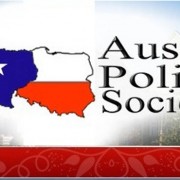

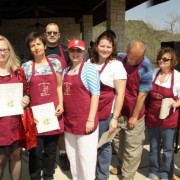




 Expatriates: Americans in Vietnam – Meet Elliott Price
Expatriates: Americans in Vietnam – Meet Elliott Price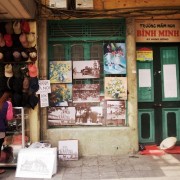


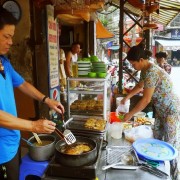

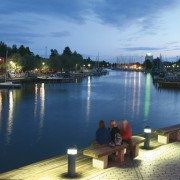
 Expatriates: Living in a Remote Town in Finland As An Expat
Expatriates: Living in a Remote Town in Finland As An Expat
 Lithuanians in Madrid and Helsinki – Meet Vaida Vaitekunaite
Lithuanians in Madrid and Helsinki – Meet Vaida Vaitekunaite
 Philadelphia – Ana Vizcarra Rankin
Philadelphia – Ana Vizcarra Rankin
 Finnish in Spain – Meet Kai Langel living in Cambrils, Catalonia
Finnish in Spain – Meet Kai Langel living in Cambrils, Catalonia


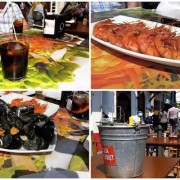
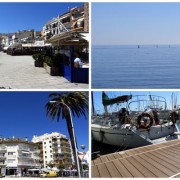


 Expatriates in Austin: Austin Hungarian Association
Expatriates in Austin: Austin Hungarian Association
 Expatriates: British in New York – Meet Jacqui Stafford
Expatriates: British in New York – Meet Jacqui Stafford
